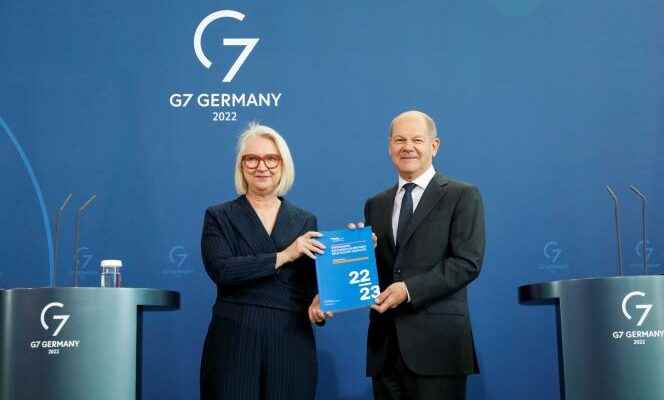The annual report of the council for analyzing the German economic situation is rarely likely to provoke political controversy. The document, written over six weeks by five seasoned experts (nicknamed the “wise men”), which comprises several hundred pages, advises the government on the major economic issues of the moment. The comments it arouses rarely go beyond informed circles. But the 2022 vintage is exceptional: it created a lively controversy even before its official presentation, Wednesday, November 9.
And for good reason: the “wise men” recommend this year to the executive to increase “temporarily” taxes for the wealthy. Unheard of in a council traditionally considered a bastion of German ordoliberalism, favorable to tax cuts and strict budgetary discipline.
The subject is extremely sensitive politically, because the Minister of Finance, Christian Lindner, is the leader of the FDP, the Liberal Party, which joined the coalition only after the promise obtained from the two other parties (the Social Democratic Party and the Greens) that no new taxes would be raised. “Change of tone at the council of the wise”headlined the business daily Handelsblattvisibly worried about this apparent redistributive push within the prestigious cenacle.
However, the experts, questioned on this subject, retorted that their recommendations had been issued according to pure economic logic. The government has hastily put together very generous packages of tax relief in recent months to deal with the explosion in the prices of gas, oil and electricity.
Tense budgetary situation
Since the billions of euros in aid have also benefited the richest, who did not need it, does it not make sense to rectify the situation? And to temporarily introduce a tax or an additional tax for the wealthiest categories, in order to limit the inflationary effect of additional public expenditure, while instilling more solidarity in a tense budgetary situation?
These arguments did not convince the Liberals. Christian Lindner stated laconically that “the government was not planning any tax increases”. The Social Democrats and the Greens, who have long called for taxing the wealthiest, could have swaggered … if the council had not jostled them too. The report recommends, in fact, the extension of nuclear power plants “at least until 2024”a red line for environmentalists and certain members of the SPD, who have declared the end of nuclear power for the spring of 2023. Enough to fuel the debates, already very stormy, within the government.
You have 28.04% of this article left to read. The following is for subscribers only.
